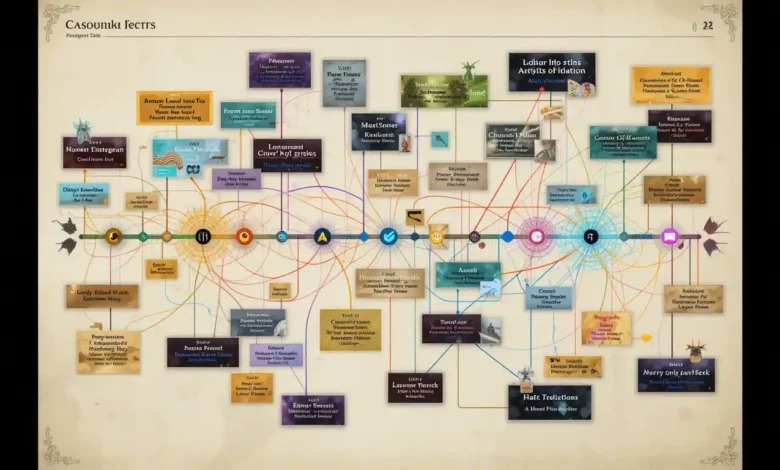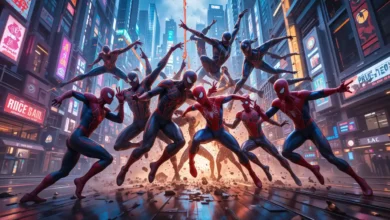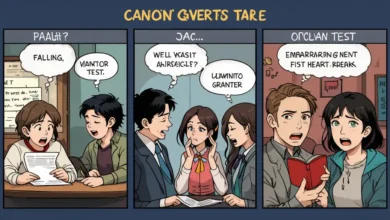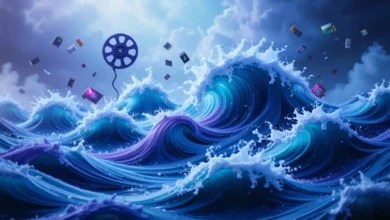Canon Events: A Deep Dive into Fictional Continuity

Introduction
In the realm of storytelling, whether it be in books, movies, TV shows, or video games, the term “canon event” holds significant importance. Canon events are pivotal moments or elements that are officially recognized as part of a narrative’s continuity. Understanding canon events can enhance our appreciation of complex storylines and character developments. This blog post delves into the concept of canon events, exploring their role in fiction and their impact on audiences.
What is a Canon Event?
A canon event is an officially recognized part of a story that contributes to its continuity and overall narrative structure. These events are integral to the plot and character development, forming the foundation upon which the story is built. Canon events are typically established by the original creators and are accepted as authentic within the fictional universe.
The Importance of Canon Events in Storytelling
Canon events are crucial for maintaining consistency and coherence within a story. They ensure that the narrative progresses logically and that character actions and developments remain believable. Without canon events, stories could become disjointed and confusing, losing their emotional and intellectual impact on the audience.
Examples of Canon Events in Popular Media
Many well-known stories across various media have key canon events that define their narratives. For instance, in the “Harry Potter” series, the revelation that Harry is a Horcrux is a significant canon event. Similarly, in the “Star Wars” saga, Darth Vader revealing he is Luke Skywalker’s father is an iconic canon event. These moments are crucial to the stories’ continuity and have lasting impacts on their respective narratives.
Canon Events in Literature
In literature, canon events often serve as turning points that shape the direction of the plot. For example, in “The Great Gatsby,” Gatsby’s death is a major canon event that impacts all the main characters and brings the story to its climax. Understanding these events can provide deeper insights into the themes and messages of literary works.
Canon Events in Film and Television
Film and television often rely heavily on canon events to build suspense and keep audiences engaged. In the TV series “Game of Thrones,” the Red Wedding is a canon event that drastically alters the storyline and character arcs. Such events are carefully crafted to evoke strong reactions and drive the plot forward.
Canon Events in Comic Books
Comic books are a rich source of canon events, especially in long-running series where continuity is key. In the Marvel Comics universe, the death of Gwen Stacy in “The Amazing Spider-Man” is a significant canon event that influences Spider-Man’s character development. These events often become iconic moments that define the series.
The Role of Canon Events in Video Games
Video games also incorporate canon events to enhance storytelling and player engagement. In “The Legend of Zelda: Ocarina of Time,” Link’s discovery of the Master Sword is a canon event that propels the narrative into new realms of adventure. Such events are crucial for creating memorable gaming experiences.
How Canon Events Influence Fandom
Canon events play a significant role in shaping fandoms. Fans often debate and analyze these events, creating a vibrant community of discussion and speculation. For instance, the revelation of Jon Snow’s parentage in “Game of Thrones” sparked extensive fan theories and discussions, highlighting the impact of canon events on fan culture.
The Challenges of Maintaining Canon
Maintaining canon can be challenging, especially in long-running franchises with multiple creators. Conflicting interpretations and retcons (retroactive continuity changes) can complicate the narrative. For instance, the “Star Wars” franchise has faced challenges in keeping its canon consistent across movies, books, and other media. These challenges highlight the complexities of preserving canon events.
Canon Events and Retconning
Retconning involves altering previously established canon events to fit new storylines. This practice can be controversial, as it may disrupt the continuity and upset fans. However, when done thoughtfully, retconning can revitalize a story. An example is the reimagining of Batman’s origin story in DC Comics’ “Year One,” which added depth to the character while respecting the core canon.
Conclusion
Canon events are the backbone of fictional narratives, providing structure and continuity that keep stories cohesive and engaging. Whether in literature, film, television, comic books, or video games, these pivotal moments shape the direction of the plot and the development of characters. Understanding canon events enriches our appreciation of storytelling and enhances our connection to the fictional worlds we love.
FAQs
1. What is a canon event in storytelling?
A canon event is an officially recognized part of a story that contributes to its continuity and overall narrative structure, established by the original creators.
2. Why are canon events important?
Canon events are crucial for maintaining consistency and coherence within a story, ensuring logical progression and believable character development.
3. Can canon events be changed?
Yes, canon events can be altered through a process called retconning, which involves making retroactive changes to the narrative. However, this can be controversial and may disrupt continuity.
4. How do canon events influence fandom? Canon events often spark discussions and debates among fans, creating a vibrant community of analysis and speculation that enhances the fandom experience.
5. What are some examples of canon events in popular media?
Examples include Darth Vader revealing he is Luke Skywalker’s father in “Star Wars,” the Red Wedding in “Game of Thrones,” and the death of Gwen Stacy in “The Amazing Spider-Man.” These events are pivotal to their respective stories and have lasting impacts on the narrative.





